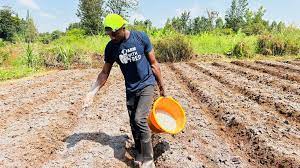The agricultural ecosystem of Northern Nigeria has entered a new scientific era with the launch of a world-class agro and water testing facility in Kano, a breakthrough designed to raise the standards of food safety, crop productivity, and environmental sustainability through science-driven analysis.
The facility, equipped with cutting-edge analytical technology, delivers internationally accredited testing services for soil, crops, and water. Backed by certifications from leading Nigerian regulatory bodies and aligned with European Union Standard Analysis protocols, it is poised to strengthen the integrity and competitiveness of Nigeria’s agricultural exports.
Speaking at a scientific conference in Kano to mark the unveiling, Mr. Khaled Moussallati, founder of Famousa Agro Limited, explained that the facility mirrors their flagship lab in Cairo, ensuring precision, consistency, and accuracy that meet global validation across more than 120 countries. “Our mission is to make advanced agricultural testing accessible to Nigeria’s farmers and industries while maintaining the highest standards of analytical reliability,” he said.

In a detailed technical presentation, Dr. Ahmad Birouty, the Lab Manager, outlined the laboratory’s diverse testing capabilities, from chemical and physical analyses to mycotoxin, pesticide residue, and comprehensive water testing. He emphasized that these analyses are vital to protecting food supplies, maintaining soil and water health, and guaranteeing that agricultural products meet international safety benchmarks.
Dr. Birouty added that the facility’s innovation-driven approach directly supports Nigeria’s transition toward globally compliant agricultural practices. “Scientific validation is the key to market access,” he said. “With this facility, Nigerian farmers and exporters can compete confidently on the global stage.”
Government agencies and agricultural stakeholders present, including IPAN, NiNAS, NAFDAC, NIRSAL, and NEPC, hailed the lab as a timely intervention that will reduce the cost and delays of sending samples outside the region for testing. The facility’s proximity to the agricultural heartland of Northern Nigeria is expected to empower local farmers and agribusinesses with reliable data to improve yield, soil health, and export readiness.
The new testing hub also signals a strategic collaboration between science, policy, and production. By working closely with universities, research institutions, and government agencies, the lab aims to drive food safety and sustainable agricultural practices.
With its advanced infrastructure, expert personnel, and adherence to international standards, the Kano facility represents more than a laboratory, it is a scientific bridge linking Nigeria’s agriculture to global excellence.





